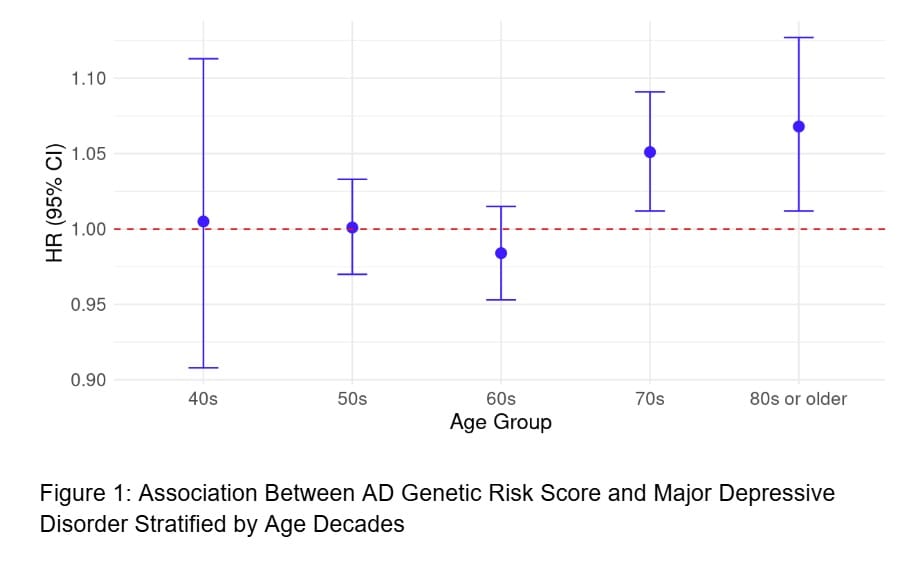Genetics
Reverse Mendelian Randomization of Alzheimer’s Disease Genetic Risk Score and Depression: Evidence from the Kaiser GERA Cohort Minhyuk Choi* Minhyuk Choi Scott Zimmerman Peter Buto Jingxuan Wang Willa Brenowitz Adina Zeki Al Hazzouri Katrina Kezios Maria Glymour Thomas Hoffmann
Background: Identifying prodromal changes associated with incipient Alzheimer’s Disease (AD) is essential to guide prevention efforts and understand confounding in observational research. Depressive symptoms may serve as early manifestations of AD pathophysiology. However, empirical evidence regarding depression as a prodromal sign of AD is muddied because depression may also increase AD risk. Using genetic risk of AD in a reverse Mendelian Randomization design establishes temporal order. We estimated associations of AD genetic risk with incident major depressive disorders (MDD) across age strata. Methods: Genetic Epidemiology Research on Aging (GERA) cohort participants (N=69,571) who were dementia-free and aged 46+ at baseline were followed from 1997 or earliest Kaiser Permanente enrollment through 2020 for a first diagnosis of MDD. A z-scored AD genetic risk score (AD-GRS) was calculated using 83 single-nucleotide polymorphisms. Time-varying Cox proportional hazards models were used to estimate age-decade-stratified associations of AD-GRS with MDD. Individuals were censored at the diagnosis of MDD, end of enrollment, or dementia diagnosis (AD, vascular dementia, or non-specific dementia). Models were adjusted for race, 10 principal components of genetic ancestry, gender, smoking status, education, hospital visits and prescription counts. Results: In decade-stratified models, AD-GRS was associated with incident MDD among people ages 70-79 (HR = 1.051, 95% CI: 1.012–1.091, p = 0.01) and 80 or older (HR = 1.068, 95% CI: 1.012–1.127, p = 0.016) but not at earlier ages (Figure 1). Conclusion: AD genes may accelerate AD-related depressive symptoms starting in the age of 70s, but we found no evidence of reverse causation from AD to depression in middle aged adults.

